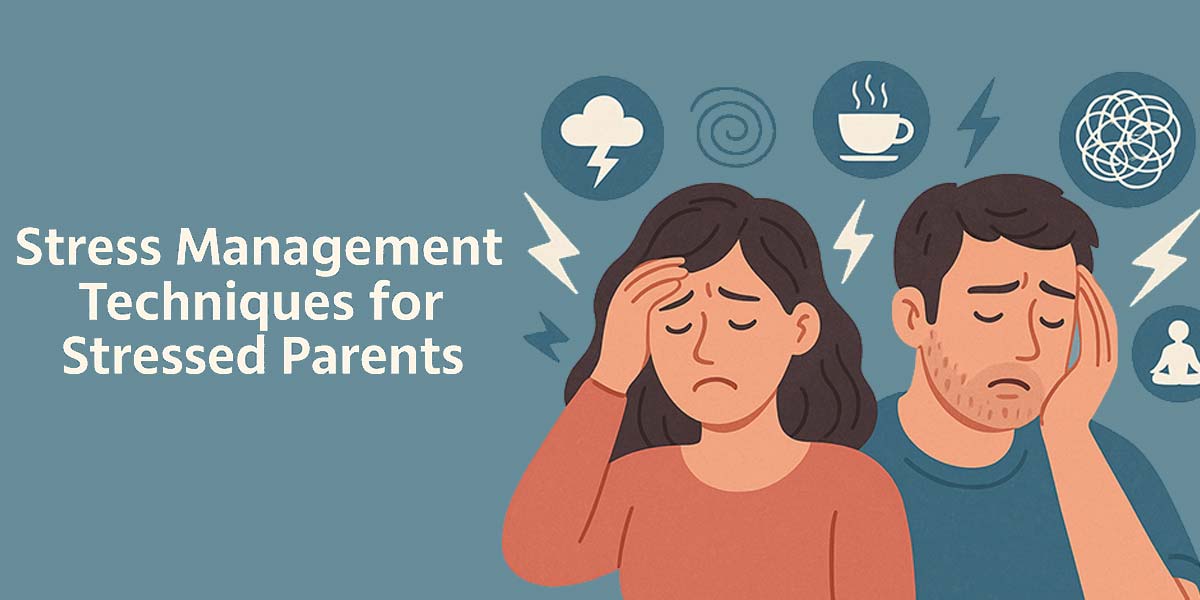
Unveiling the Art of Stress Management Without Losing Your Marbles
Stress Management Techniques for Stressed Parents
Let’s be honest—parenting can be stressful. Between tantrums, school drop-offs, work deadlines, and trying to squeeze in some sleep, it’s no wonder parents feel overwhelmed. But stress doesn’t have to control your life. With the right strategies, you can stay grounded, even during the chaos.
This guide combines practical stress relief techniques with the heart of Positive Parenting, as taught by James A. Baker. It’s all about building emotional resilience and setting a positive tone for your family—even when life gets messy.
Why Stress Management Matters for Parents
When stress runs high, patience runs low. And let’s face it—kids pick up on everything. Unmanaged stress can affect your mood, your ability to discipline calmly, and your child’s emotional well-being. Managing your own stress isn't selfish; it’s essential for your family’s health.
Understanding the Root Causes of Parental Stress
Parenting stress comes in many forms. Common sources include:
- Balancing work and family responsibilities
- Financial pressures
- Sleep deprivation
- Conflicts with co-parents or extended family
- Feeling unappreciated or unsupported
Recognizing what’s draining your energy is the first step toward regaining control.
Positive Parenting: A Foundation for Emotional Balance
James A. Baker's Positive Parenting framework encourages self-awareness, empathy, and proactive planning. When parents practice emotional regulation, they model those same skills for their children.
Core Concepts from Positive Parenting:
- Self-regulation: Calm responses create calmer kids
- Empathy: Understanding your child's needs reduces conflict
- Clarity: Setting boundaries with kindness prevents power struggles
- Connection: Strong bonds reduce behavioral stressors
Stress doesn’t disappear overnight—but how you respond to it can change everything.
8 Practical Stress Management Techniques for Parents
1. Breathe Before You React
Before raising your voice or reacting out of frustration, pause and take a few deep breaths. Even just 10 seconds can help you shift from reactive to reflective.
2. Create a Predictable Routine
Children thrive on structure—and so do parents. Morning and bedtime routines reduce daily chaos and give you a sense of control. Knowing what’s next can lower anxiety for the whole family.
3. Set Realistic Expectations
You’re not a superhero—and that’s okay. Let go of perfection and focus on what matters most. Prioritize connection over completing every task perfectly.
4. Take 10 Minutes for Yourself Daily
Even a short walk, a cup of tea, or five minutes of silence can make a difference. Protect a pocket of time each day to recharge, no matter how small.
5. Use “When-Then” Statements
Instead of arguing, use calm and clear boundaries: “When your shoes are on, then we can leave.” This technique reduces conflict and boosts cooperation.
6. Ask for Help (and Accept It)
Whether it’s your partner, a friend, or a parenting coach, lean on your support network. You don’t have to do everything alone.
7. Practice Gratitude
Each night, name one thing you’re grateful for—even if the day was rough. Shifting your focus can change your mindset over time.
8. Take a Parenting Class
Sometimes, we just need more tools. Our Online parenting classes provide real-world strategies to manage stress, improve communication, and raise emotionally healthy children.
Managing Stress Isn’t Just Self-Care—It’s Family Care
Your ability to stay calm affects how your child learns to handle their own emotions. By managing stress positively, you create a more peaceful home and a deeper connection with your child.
Start Your Journey Toward Calm Today
Being a parent is one of life’s toughest—and most meaningful—roles. You deserve support, tools, and time to breathe. By incorporating Positive Parenting techniques and practical stress relief, you can parent with more peace and confidence.
Join our Online Parenting Classes and discover how to manage stress, communicate with compassion, and build a strong, connected family.